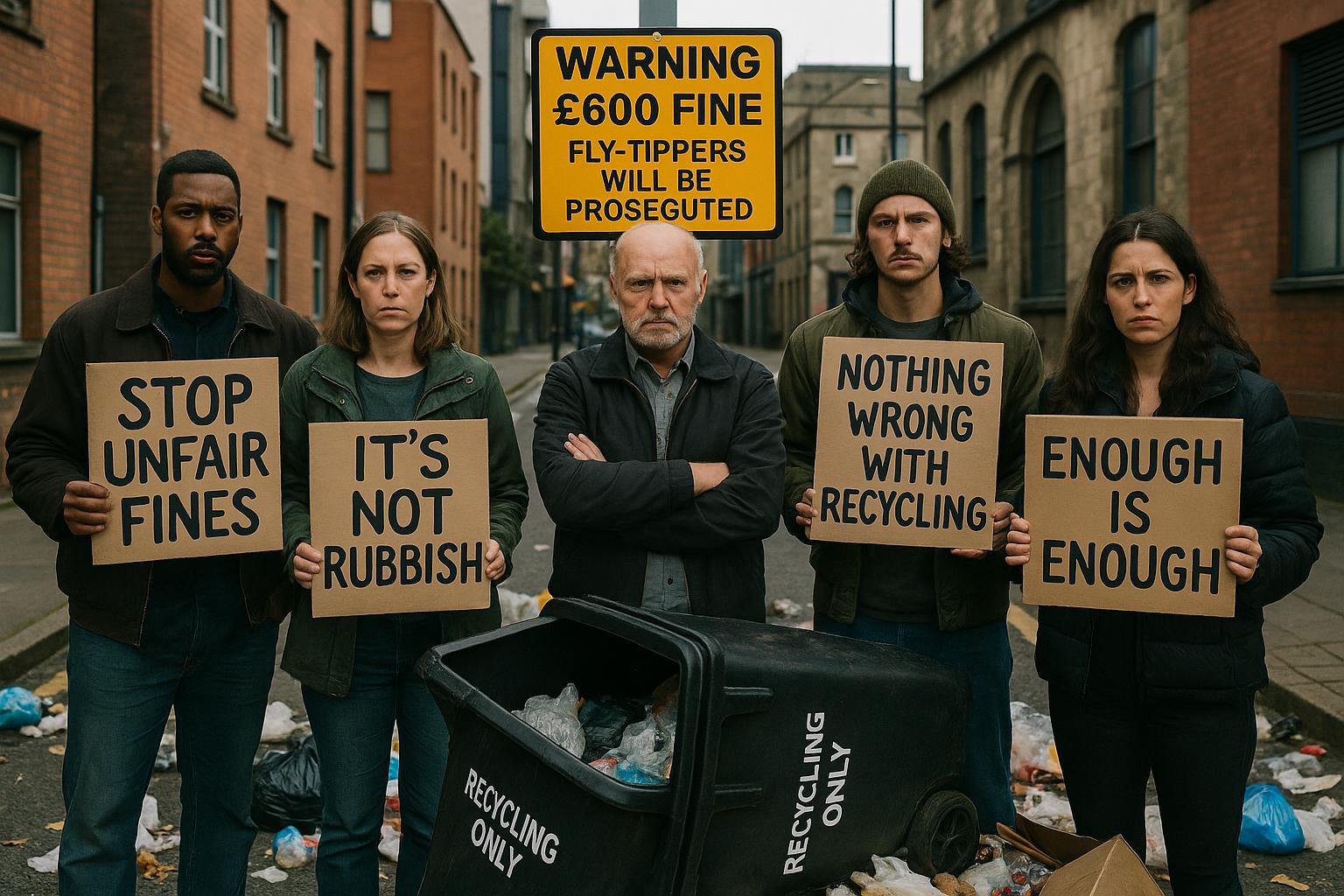Neighbours in Ealing, West London, have expressed anger and frustration after receiving £600 fines from council officers who mistakenly identified their recycling as fly-tipping. Fiona Muir and her neighbours, who have habitually placed recycling on a nearby grass verge to comply with restrictions prohibiting vehicles from stopping outside their homes on a red route, were shocked by the fines issued by Ealing Council. The letters they received were described as "threatening," branding the residents as criminals when they claim to be responsible recyclers.
Ms Muir told the Daily Mail the recycling setup had remained unchanged for years with no prior issues. She expressed her distress at being wrongly accused and said, "It's so unsettling and threatening for those who receive them and who are clearly innocent. We think we're good residents and this is wrong." She also emphasised the irony, noting that she had reported genuine fly-tipping cases to the council before. After submitting an appeal, Ms Muir received confirmation that their cases were under further review, but she remains concerned about the possibility of additional fines. Unable to place recycling outside their homes due to traffic regulations, she lamented the lack of clear communication from the council regarding any procedural changes.
Ealing Council has been proactive in addressing widespread fly-tipping problems, having recorded over 22,700 incidents in 2024 alone and spending approximately £3 million annually on clearance and disposal. The council recently launched a campaign titled "This is our home, not a tip" aiming to deter illegal waste dumping by increasing fines to £1,000, more than doubling the previous penalty of £400. This stringent approach reflects the borough’s commitment to combating environmental degradation caused by fly-tipping. Their enforcement activities have been intensive, with a contractor clearing 98% of reported cases within two working days and issuing over 1,700 fines since January 2025.
Residents are encouraged to report fly-tipping through detailed submissions including time, date, and photographic evidence, since effective enforcement relies heavily on witness input. Ealing Council’s guidance clarifies that waste found on private properties is the responsibility of the landowner, highlighting the complexities involved in dealing with illegal dumping.
The fines issued to Ms Muir and her neighbours come in the context of an intensifying clampdown on waste offences across London. Recently, a woman in Kew was fined £150 for disposing of leftover coffee liquid on a road drain, an incident that sparked debate about the appropriateness of enforcement tactics. Richmond-upon-Thames Council later cancelled the fine following public backlash and indicated a review of their guidance on disposal of liquids in public.
This episode in Ealing raises questions about the balance needed between firm action against true offenders and ensuring innocent residents do not face punitive measures due to misunderstandings or procedural ambiguities. While the council’s strong stance on fly-tipping reflects the scale of the problem and the significant costs involved, it also underscores the need for clear communication and fair enforcement to maintain community trust.
📌 Reference Map:
- Paragraph 1 – [1] (Daily Mail)
- Paragraph 2 – [1] (Daily Mail)
- Paragraph 3 – [1] (Daily Mail), [4] (Ealing Council Enforcement), [5] (Around Ealing Campaign)
- Paragraph 4 – [2] (Ealing Council Fly-tipping info), [3] (Ealing Council Reporting)
- Paragraph 5 – [1] (Daily Mail), [6] (Around Ealing), [7] (Around Ealing)
Source: Noah Wire Services
